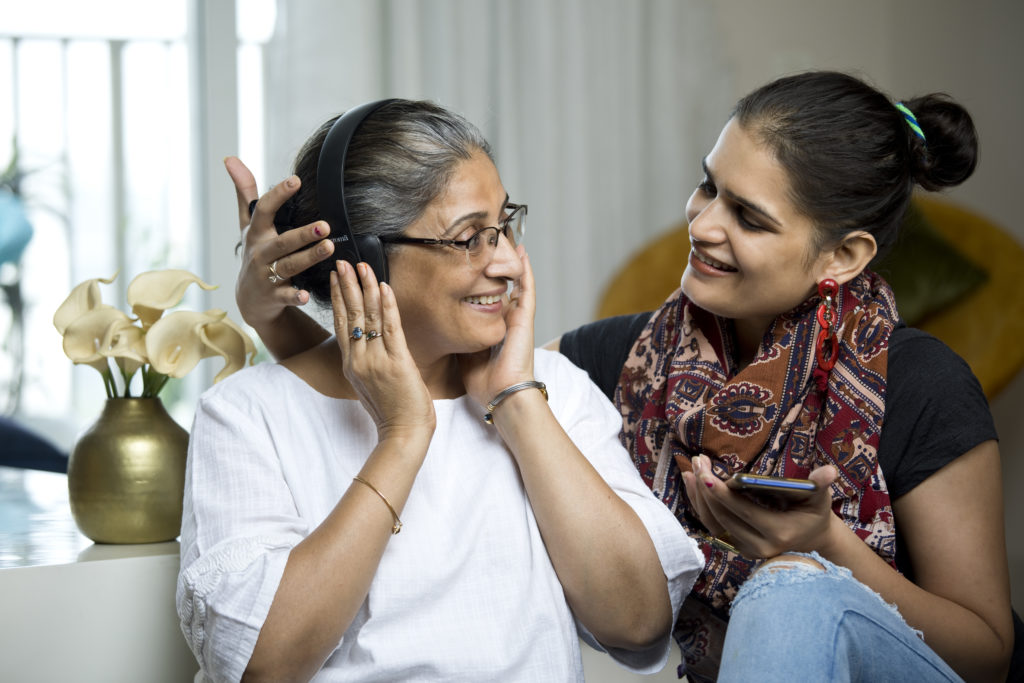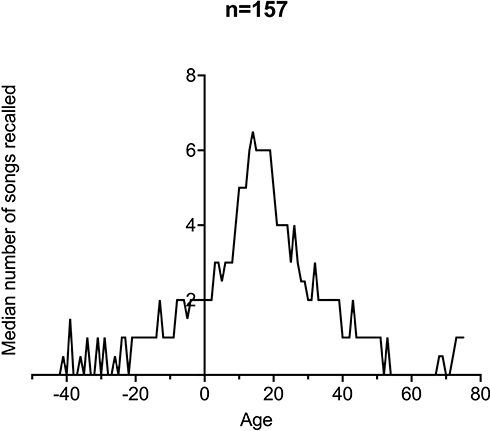The 'Reminiscence
Bump' - Our Research
A Focus on the 'Reminiscence Bump' to Personalise Music Playlists for Dementia
Over a 12 month period, the Music for my Mind team, lead by two University College London student volunteers Chirag Rao and John Peatfield, created a study on music and memory, authoring a paper which has now been published in The Journal of Multidisciplinary Healthcare.
The aim of the study was to discover at what age in a person’s lifetime popular music leaves the greatest impression on their memory. Or, put more simply, do we better remember the songs we first heard when we were 13 when we are 30, or from when we were 63 when we are now 93?
The method
The study asked around 300 volunteers, people of a range of ages, to take part in an online quiz. The quiz had 71 questions for 71 years, between 1945 and 2015, presented in random order, and each question was a printed selection of 10 of the top 100 songs from that year. Participants were asked how many of those 10 songs they recognised well enough to be able to hum the tune, on a scale of none of them to all 10.


Graph showing the median number of songs recalled. The peak recollection of 6+ songs occurred between the ages of 13 and 19 years old
The finding
From our results, we concluded that the age at which these popular songs are most memorable is between 13 and 19, supporting our hypothesis for using music from an individual’s formative years when creating playlists. This period is several years younger than what previous research papers had found, where the peak age for memory was roughly between 15 and 25.
These results are important to Music for my Mind because they dramatically increase the accuracy of our playlist creation app, and indeed all aspects of our care programs, especially helping those who may not be able to recall the names of their favourite music. Now, when we know someone’s date of birth, say 1945, we know that the years they will probably know the most music from are 1958 through to 1964. But there is not only a greater chance that the person knows the music from those years, but also a much greater chance that they like those songs and will enjoy hearing them during their time living with dementia.
Our thanks go to The Journal of Multidisciplinary Healthcare for publishing the paper, University College London for funding its publication, the team who conducted the research for their hard work, and most importantly of all the volunteers who took part in the survey.
We are excited about our research programme and the potential to advance understanding of the impact of personalised music on people living with dementia. All of our projects have been given Research Ethics Committee approval by the Camberwell St Giles Ethics Committee in London.
To support our research, we have been developing and testing Web Apps to create and deliver the personalised playlists to people living with dementia. You can read more about our technological development programme here.
Sign up for newsletter updates here to be the first to know about our research progress.

